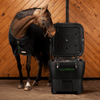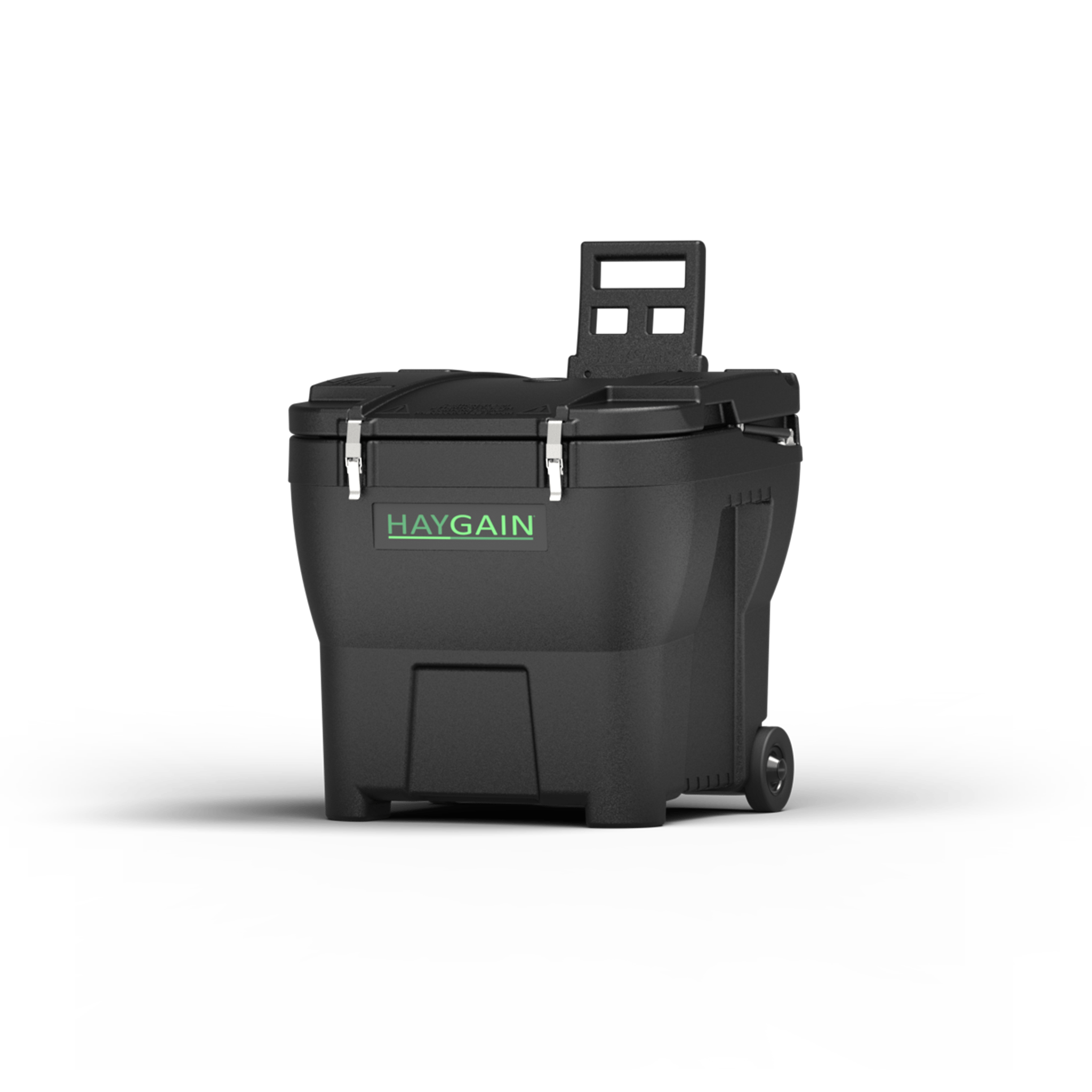By Kim F Miller
“I could not imagine that any sane person would go buy some gizmo to steam hay.”
Tennessee horse owner Dr. Jean Lewis has changed her tune since making that statement a few years ago. The retired university dean is not stingy when it comes to her horses’ care, but she felt there had to be a better way to help solve her Quarter Horse mare Coconut’s worsening respiratory problems.
For three years, Jean tried everything. She started with low-dust bedding, buying the best possible hay and other common-sense stable management measures. She tried antihistamines, supplements and nebulized medications. Jean was confident she’d systematically tried everything possible to help her horse. The only exception was the hay steamer that Coconut’s vet had recommended twice, but just didn’t seem to make sense at the time.
Then came Jean’s “come to Jesus” moment in the form of following the vet’s orders to soak Coconut’s hay to reduce dust and allergens. “That lasted for a week,” Jean states. “Attempting to pick up a net of wet hay that seemed to weigh 4,000 pounds – and plunging my hands into ice cold water when it’s getting cold outside…”
The hassles were untenable—not to mention the fact that soaking hay is far less effective than steaming for removing the airway irritants that irreparably harm the respiratory system.
She gave into the suggestion that initially seemed crazy. “I bought a steamer as a Christmas present to myself,” Jean recounts. But it’s Coconut who received the gift’s biggest benefits. In the year that the mare’s been on Haygain steamed hay, she has not required any of the corticosteroids, supplements or other medications used over the preceding three years to manage her condition.
Early Warnings
Coconut had an occasional, mild cough when Jean purchased her in Colorado. “I knew she had some kind of a breathing issue because otherwise I could not have afforded her.” That worsened and additional symptoms arose once the mare settled into Jean’s home stable in northern Tennessee’s Oneida. “Along with beautiful mountains, one of our claims to fame is the worst possible allergy conditions in the country.”

Coconut’s mild cough became more frequent and not-so-mild, her nose filled with gunky discharge and she needed to rest and recover her breath after exertion. Scariest of all, she suffered an occasional palate displacement. When the latter condition was diagnosed by Coconut’s local veterinarian, Jean took the mare to the University of Tennessee’s renowned College of Veterinary Medicine for a thorough assessment.
Jean expected the recommendation of a relatively simple surgery to correct it. Instead she got the news of full-blown Equine Asthma as the root cause of the displacement. Conditions on the Equine Asthma Spectrum can’t be cured, but they can be managed and Coconut’s had to be gotten under control.


















